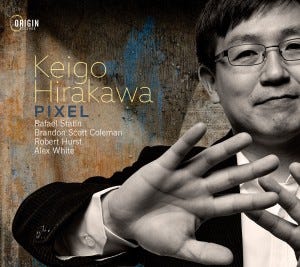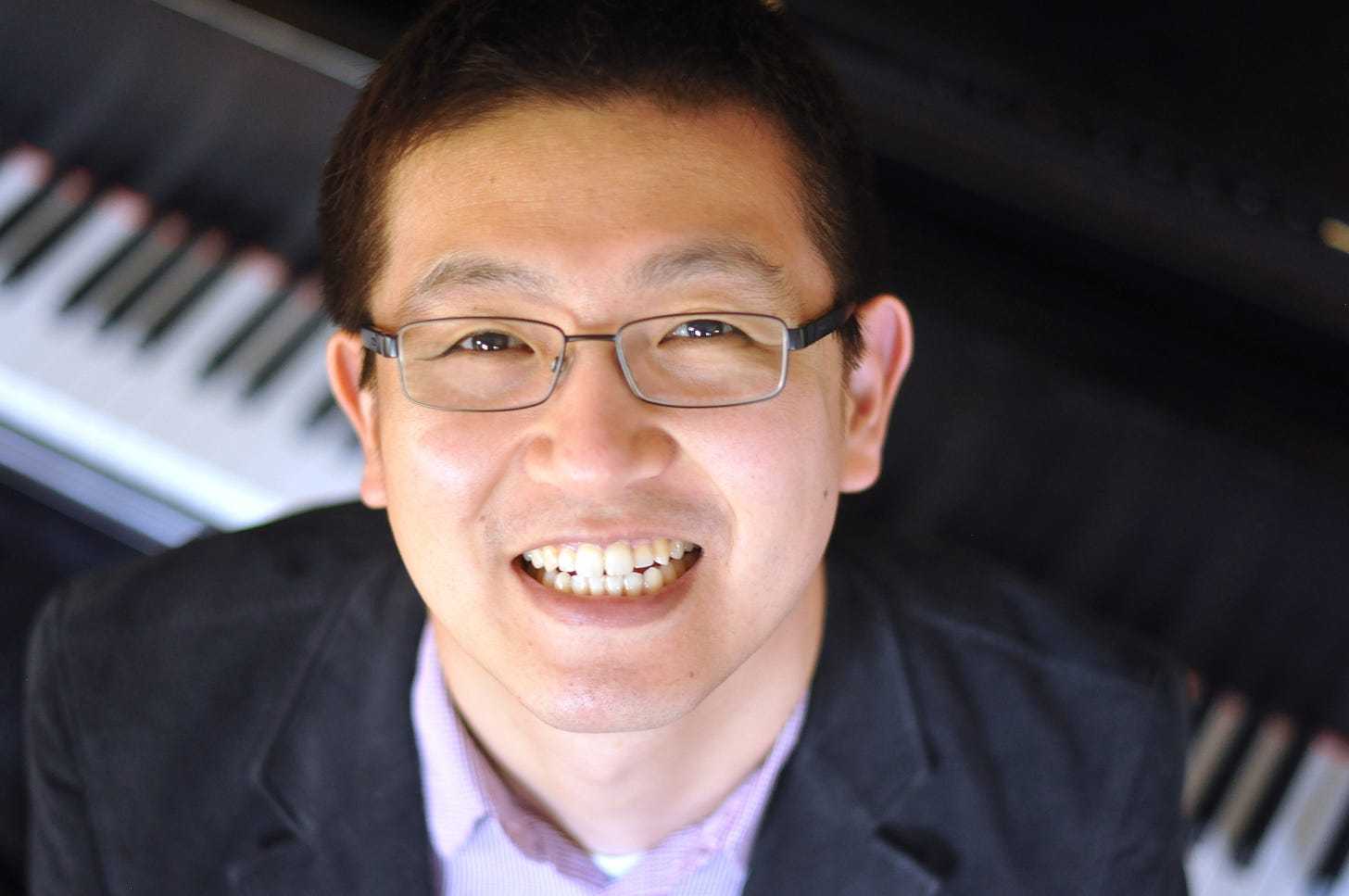
A pixel. The smallest addressable unit that can be manipulated by software. It’s apt – and slightly ironic – that a Professor of Electrical and Computer Engineering, who is also a vastly talented pianist, would choose the word for the title of his latest quintet release. The irony is two-fold: First, for most part, this is an acoustic project. Outside of guitarist Brandon Scott Campbell, all the musicians play acoustic instruments. So there’s no digital trace to really be manipulated by software. However, second – and most importantly – Hirakawa has crafted a sprawling 66-minute sonic journey that is far greater than the album’s namesake!
Pixel is the third album led by Keigo Hirakawa in his 20-plus-year career as a pianist. The quintet is comprised of Hirakawa at the piano, with Detroit groovers Robert Hurst on bass and Alex White on drums, Detroit reed-master Rafael Statin, and Cincinnati-based guitarist Brandon Scott Coleman. Of the eight compositions, seven are Hirakawa originals, with the remaining cut, a beautifully tender ballad, being written by Coleman. All of these compositions are layered and textured in such a way that they promote multiple listenings, without a feeling of stagnancy.
The album sprawls over 66 minutes, one-third of which is just 2 songs. But the numbers don’t drag. The longest cut on the record is “Home Somewhere,” clocking in at almost 12 minutes. However, there’s a very solid Detroit groove laid down by Hurst and White that propels the selection forward, never letting it dawdle. In contrast, “Yaw Pitch Roll” is one of the shortest pieces on the recording, and – if I’m being honest – slightly drags, and isn’t my favorite. Throughout the entire record, though, is a remarkably refreshing economy of notes Hirakawa employs. Where a lot of newer albums would fill the compositions with a fast-and-furious flurry of notes, Hirakawa allows for the time-honored tradition of space in the music; letting each song breathe and expand.

One of the greatest assets of this album is there are numbers that allow each player to shine. Rafael Statin truly stands out on the composition “Far Above”; “Unmarked Path” and “Dreaming Awake” allow Brandon Scott Coleman to flex his virtuosity. However the two pieces where the group are at their most-cohesive are the aforementioned “Home Somewhere” and the Wayne-Shorter-esque “Origami Beetle.” These two numbers ebb and flow in a set reminiscent of the small group sessions of the late-’50s through the mid-’60s.
Overall, this is a solid outing for Hirakawa and company. It might not be for novice jazz fans; the length of the numbers could possibly be a deterrent to those who are just getting into the artform. However, for fans of solid, small-group, straight-ahead jazz, this is an outstanding date. I sadly missed Hirakawa when he was in Detroit in July. Hopefully next time, I won’t miss out on such a remarkable pianist.

